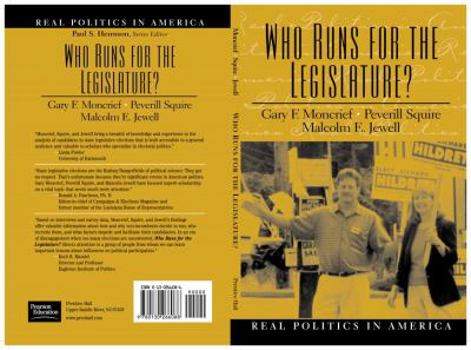Who Runs For The Legislature?
An examination of state-legislative candidates, based on extensive surveys with over 600 candidates - 'traditional' and 'non-traditional' - in eight American states. A series of 'candidate profiles'... This description may be from another edition of this product.
Format:Paperback
Language:English
ISBN:0130266086
ISBN13:9780130266088
Release Date:January 2000
Publisher:Prentice Hall
Length:130 Pages
Weight:0.45 lbs.
Dimensions:0.3" x 6.0" x 9.0"













